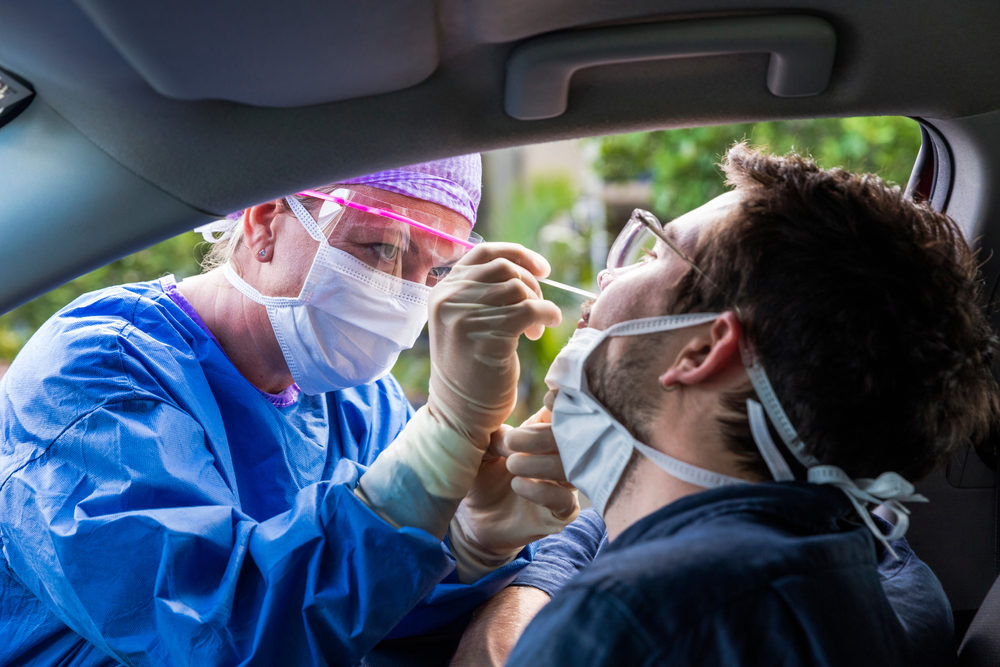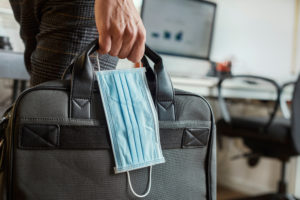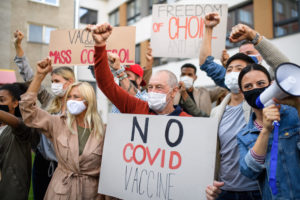
There’s no question that COVID-19, the dangerous illness caused by the novel coronavirus, has affected nearly every aspect of our lives, no matter who you are. If you’re part of the working population, it likely has infiltrated multiple parts of your life – transitioning into working from home, reduced hours, or maybe being laid off altogether because your business just can’t afford to stay open. But if you’re still working outside your home, you might not have thought about an important aspect of doing so that COVID-19 has also changed: workers’ compensation benefits.
What exactly is workers’ compensation? It’s a type of business insurance that employers purchase to cover their employees – and themselves – if the employee is hurt at work. It can assist with medical and rehab bills and lost income, and it can provide financial relief for families of workers who die from their injuries.
If an employee files a workers’ comp claim, they are giving up their right to sue their employer for damages related to the injury. Workers’ comp insurance is required in all states except Texas and usually covers about two-thirds of an employee’s regular wage. Certain types of employees, such as seasonal workers and independent contractors, don’t always qualify for these benefits.
Does workers’ comp cover those with COVID-19?
The answer can be complicated. Usually, it does not cover infectious diseases such as the common cold or flu because, of course, those things cannot be proven as the fault of the employer. Exceptions are made in certain states for occupations like firefighting, which run the risk of exposure to harmful chemicals. Still, the vast majority of workers struck by a viral sickness are not covered.
However, COVID-19 being classified as a global pandemic means that, in many cases, the “normal” rules do not apply. Jobs that weren’t overly dangerous before, such as doctors, nurses, pharmacists and others performing “essential” tasks, are extremely vulnerable to the virus. Some states have adjusted their policies to accommodate that.
In April 2020, Florida’s CFO and State Fire Marshal, Jimmy Patronis, issued a directive stating that the Division of Risk Management must provide workers’ comp coverage to all state employees whose jobs require them to expose themselves to people who may be infected with COVID-19: specifically noted were first responders, child safety and corrections officers, National Guard members responding to the virus, and state-employed healthcare workers. Still, the directive said that state agencies could choose to opt-out of this coverage, and workers’ comp claims by frontline workers have routinely been denied all over the country, including Florida.
The Battle to Receive Workers’ Comp Benefits
Data collected by Patronis’ office found that nearly half of the claims filed by first responders, healthcare workers and others who contracted COVID-19 have been denied. Over 60% of the denials were given by private insurers who were not subject to the state directive. Those numbers refer to indemnity claims rather than medical-only claims, which involve workers who are injured for more than eight days and request lost wages. Claims were filed in all 67 Florida counties except DeSoto.
Including COVID-related claims in state coverage puts a more significant burden on the employer to prove the infection was not work-related, supposedly making it easier for employees to collect. Businesses already struggling to stay afloat have expressed concern that this will raise their insurance premiums.
Despite this assumption that it would be easier for COVID-19-affected employees to receive benefits given the policy changes, that doesn’t appear to be the case. Many states like Florida, which is already considered a “worker-unfriendly” state by many, workers’ comp benefits are being denied.
Even the workers’ comp doctors in Florida, who are supposed to advocate for your right to benefits, are often on the employer and insurance company’s side. Suppose your doctor says you aren’t injured enough for benefits, and you want a second opinion. In that case, your only options are asking for a “one-time change” in physician, the second of whom might also dismiss your legitimate concerns, or pay $1,000 or more for an independent medical exam with the doctor of your choice. This is hardly a clear path to getting the benefits you’re entitled to receiving.
It’s even more difficult for workers not classified as first responders. For example, teachers, who are not considered “essential” but have been forced back to work in schools because they remain open, cannot easily prove they caught the virus at school. Two recent cases demonstrated the likelihood of being denied benefits because of a similar situation that makes the source of illness hard to pinpoint, even if it results in death.
In November 2019, the First District Court of Appeal in Tallahassee ruled against two state employees who had come down with meningitis stemming from certain fungi present at work.
Robert Taylor, a heavy equipment operator in Titusville, was initially granted benefits from a judge, but the state won its appeal because Taylor couldn’t prove his illness had come from the job site.
Edward Cruce, a maintenance worker for the Indian River County school board who had encountered toxic bird droppings while cleaning out a storage building, died from the subsequent illness, but survivor benefits awarded to his wife and children were reversed by the court. Cruce had unwittingly destroyed the evidence by cleaning the building.
Don’t let this happen to you. The Scott R. Marshall law firm has been providing personal, professional and aggressive representation specifically for workers’ compensation claimants in Clearwater and surrounding areas since 1997. Our experienced team can help you fight and win the benefits you deserve. Give us a call at 727-772-5900 today or contact us here to get started.

Fighting for injured workers and their families since 1997. Scott R Marshall has dedicated his career to helping injured people in their battle with big insurance, by leveling the playing field between families and corporations. The greatest balancing factor in the fight against inequality and oppression is the Rule of Law.














Comments for this article are closed.